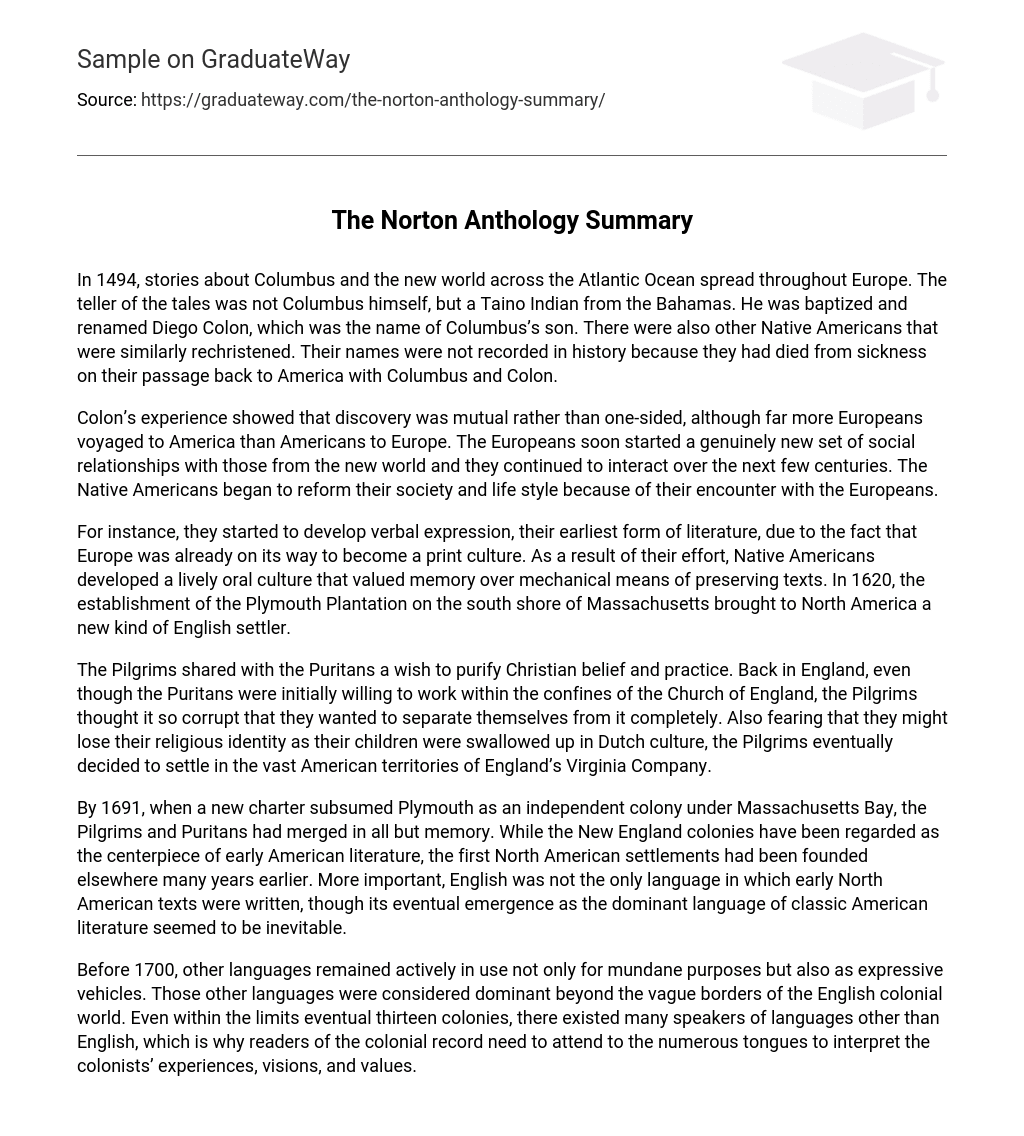In 1494, stories about Columbus and the new world across the Atlantic Ocean spread throughout Europe. The teller of the tales was not Columbus himself, but a Taino Indian from the Bahamas. He was baptized and renamed Diego Colon, which was the name of Columbus’s son. There were also other Native Americans that were similarly rechristened. Their names were not recorded in history because they had died from sickness on their passage back to America with Columbus and Colon.
Colon’s experience showed that discovery was mutual rather than one-sided, although far more Europeans voyaged to America than Americans to Europe. The Europeans soon started a genuinely new set of social relationships with those from the new world and they continued to interact over the next few centuries. The Native Americans began to reform their society and life style because of their encounter with the Europeans.
For instance, they started to develop verbal expression, their earliest form of literature, due to the fact that Europe was already on its way to become a print culture. As a result of their effort, Native Americans developed a lively oral culture that valued memory over mechanical means of preserving texts. In 1620, the establishment of the Plymouth Plantation on the south shore of Massachusetts brought to North America a new kind of English settler.
The Pilgrims shared with the Puritans a wish to purify Christian belief and practice. Back in England, even though the Puritans were initially willing to work within the confines of the Church of England, the Pilgrims thought it so corrupt that they wanted to separate themselves from it completely. Also fearing that they might lose their religious identity as their children were swallowed up in Dutch culture, the Pilgrims eventually decided to settle in the vast American territories of England’s Virginia Company.
By 1691, when a new charter subsumed Plymouth as an independent colony under Massachusetts Bay, the Pilgrims and Puritans had merged in all but memory. While the New England colonies have been regarded as the centerpiece of early American literature, the first North American settlements had been founded elsewhere many years earlier. More important, English was not the only language in which early North American texts were written, though its eventual emergence as the dominant language of classic American literature seemed to be inevitable.
Before 1700, other languages remained actively in use not only for mundane purposes but also as expressive vehicles. Those other languages were considered dominant beyond the vague borders of the English colonial world. Even within the limits eventual thirteen colonies, there existed many speakers of languages other than English, which is why readers of the colonial record need to attend to the numerous tongues to interpret the colonists’ experiences, visions, and values.





